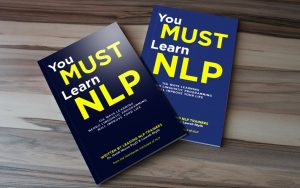Unless you work in a silo, alone with no one else around, it is useful to have your emotions and mood in check. From an NLP perspective, your mood and emotions at any point in time is known as your state, and it changes regularly.
If you are managing or leading people, selling, influencing, helping or otherwise working with people, your state is important. Studies have shown that the moods of others can easily be passed from person to person – and negative emotions win out over positives ones nearly every time!
If you want others around you to be upbeat, positive, creative or productive – then it would make sense that you would want to be the model of that yourself. Now, let’s face it – it’s not possible to always be in a good mood. In fact, bad moods are useful.
Anger, frustration, challenged, sad, worried – they are all useful in some context. In the right context, anger demonstrates that you are setting boundaries, that your values have been dismissed or a line of some sort has been crossed. But to hold onto anger for hours, or days is unusual to everyone who come into contact with you – including yourself.
You are in charge of your mind, and therefore your results. NLP will help you to be more aware of the states you are having – and when they are being unproductive for you or for the people around you. And, more importantly, how to change the state you are experiencing to transform it into something that is more useful and resourceful.








